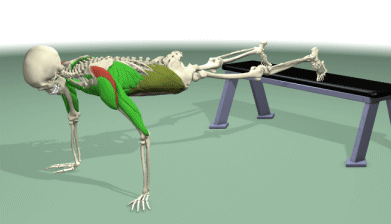




THE FITNESS
DIGEST.
Best foods for the tummy.
Your digestive system is vital to your health and happiness. So how do you keep it working well?
For starters, avoid these 5 gut enemies.
5 Worst Foods for Your Gut
1. Red meat
The more fatty the red meat you eat, the higher your risk of colorectal cancer risk. That’s because it’s typically high in saturated fat, which is tied to cancer of the small intestine.
How to avoid it: Choose lean cuts of beef, lamb and pork. Eat more protein- and iron-rich legumes in place of red meat. Grill mushrooms instead of a burger; their meaty flavor will fill you.
2. Processed meat
Lunch meats, hot dogs, sausages and other processed meats are packed with saturated fat, sodium and nitrates.Processed meats have been linked to colon cancer, possibly because they are cooked at high temperatures, which can increase carcinogens.
How to avoid it: Stick to fresh, lean cuts and eat other forms of protein (legumes and grains) as much as possible.
3. Hydrogenated oils
Trans fats, created when liquid oils are hydrogenated (so they become solid at room temperature), aren’t found in nature. They’re an inexpensive way to make fats last longer on supermarket shelves, but your body pays a high price: They’re tough to digest and have been linked to many health problems, including increased bad (LDL) cholesterol, decreased good (HDL) cholesterol and colon cancer.
How to avoid it: Get nutrients in foods that are fresh, whole and natural, and ditch the packaged, processed stuff.
4. Gluten
Gluten is a protein found in barley, rye, spelt, wheat and countless other foods, including processed meats, soy sauce, ice cream, cheese, cookies, and can cause lots of digestive complaints and stomach aches (gas, cramping, bloating ,heartburn, indigestion) and other symptoms, including chronic headaches, aching joints and muscles, depression, concentration, memory problems and poor energy levels.
How to avoid it: A gluten-free diet is the only solution to this food sensitivity; it’s a challenge but possible.
5. Lactose
Another cause of stomach aches is lactose, the principal sugar found in milk.Avoiding milk will help, but you don’t have to give up all dairy. Some lactose-intolerant people do fine with small amounts of milk.
How to avoid it: Drink lactose-free milk and eat cultured dairy products, like yogurt, which break down lactose. Aged cheeses (like cheddar and Swiss) have less lactose and may be easier to digest.
5 Best Foods for Your Gut
1 Dietary fibre
Prunes
Fibre keeps things moving through your digestive system and out. Otherwise, your colon is stuck with toxins that can build up and cause major health problems. Your body then begins reabsorbing toxins, hormones and other substances.
A diet rich in fibre protects against colon cancer and cancers of the small intestine. Fruits, vegetables, whole grains and legumes are all packed with healthy fiber. But when it comes to staying regular, prunes, because of their mild laxative effect, is the go-to fruit. They’re also a great source of energy, nutrition and disease-fighting phenolic compounds.
2. Probiotics
Yogurt
Probiotics are those “good bugs” you hear health nuts raving about. Why would anyone willingly eat bacteria?
Because our intestinal flora is made up of trillions of good bacteria that aid in digestion and promote immunity and health. In fact, 4 pounds of our body weight comes from the bacteria that live in gut.The No. 1 probiotic food is yogurt. Yes, it’s a dairy product – the bane of millions of lactose intolerant people – but eating yogurt calms digestive complaints. That’s because it contains live cultures, typically lactobacillus and bifidobacterium, that help lactose digestion.
When choosing a yogurt, make sure the cultures are listed as “live” or “active.” Yogurts with added fibre are even better.
But steer clear of yogurts with a lot of sugar, which hurts digestive health because it feeds the bad bacteria in your GI tract. Plain, unsweetened yogurt is best. Add some fibre-rich berries or honey, which has prebiotic properties, if you need to sweeten it up.
3. Prebiotics
Lentils
Prebiotics are food for probiotics.Bacteria multiply very quickly but need food once they reach the intestines.
Prebiotics help good bacteria thrive while driving down the number of disease-producing bacteria trying to invade the digestive tract.They also promote a more acidic intestinal environment, which helps the body absorb nutrients in food such as the minerals calcium, iron, zinc and magnesium.e in the digestive tract. Fortunately, prebiotics are found in many of the foods we already eat.
Fructooligosaccharides (FOS) and inulin are two naturally occurring prebiotics in onions, garlic, leeks, legumes, bananas, asparagus artichokes and more.
Lentils, a legume, are a great natural source of prebiotics and dietary fiber. They’re a good substitute for red meat because of their high protein and iron content. To help your body better use the iron in lentils, prepare them with a vitamin C-rich food such as tomatoes.
4. Gluten-free grains
Gluten – a protein found in grains such as wheat, barley and rye – isn’t necessarily bad for you. But it does cause stomach aches for many people.
Because of genetics, about 30% of us poorly digest gluten-containing grains. But many people, regardless of family history, feel better when they stop eating them. Expanding your grain repertoire is a good idea whether or not you’re gluten intolerant.
5.Fermented Foods
Sometimes your GI tract just needs a break. Fermented foods are the solution.Fermenting or culturing makes food more digestible by actually ‘predigesting’ it for you Fermenting also increases our absorption of the other nutrients in the food. Pickles, sauerkraut, kefir, miso, tempeh and Japanese tamari or soy sauce are all easy-to-digest fermented foods.
Physical fitness Disclaimer and Waiver of liability:
Exercises are not without their risks and the exercise programs in this website may result in injuries.Any person who undertakes these exercises does so at their own risk.To reduce the risk of injuries ,you should consult your doctor before beginning these or any other exercise programs.As with any exercise program ,if at any point during your workout you believe conditions to be unsafe or begin to feel faint or dizzy,have physical discomfort or pain, you should stop immediately and consult a physician.
Daily exercise for Working women.
Jumping Jacks. . Effective workouts.
Group exercise and its benefits.
Calf raises-free style . Push ups.
Tummy exercises. Hoola Hooping .
Fitness Motivational tips. Barbell Squauts.
The myths of spot reduction. Leg press.
Standing calf raises. Concentration curls.
Bench (Tricep) dips.. One arm dumbbell rows.
Pec deck Flye. Fr0nt dumbbell raises. Glute ham raise.
Seated leg curl . Close grip bench press .
.

Please keep comments positive and constructive.
Help the WEBSITE by reporting inappropriate comments to thefitnessdigest@gmail.com . Inappropriate comments may be reported and/or removed.